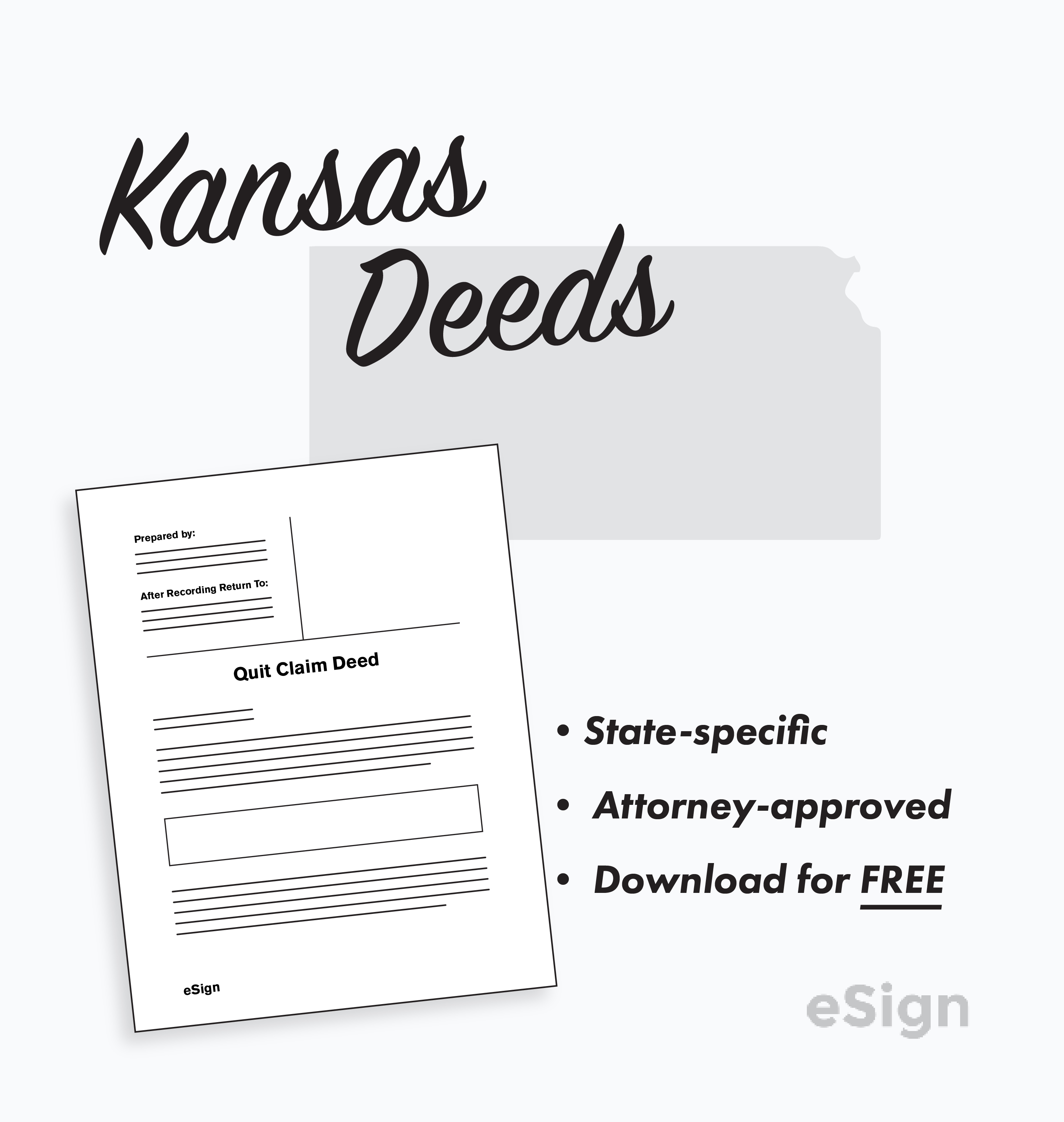By Type (4)
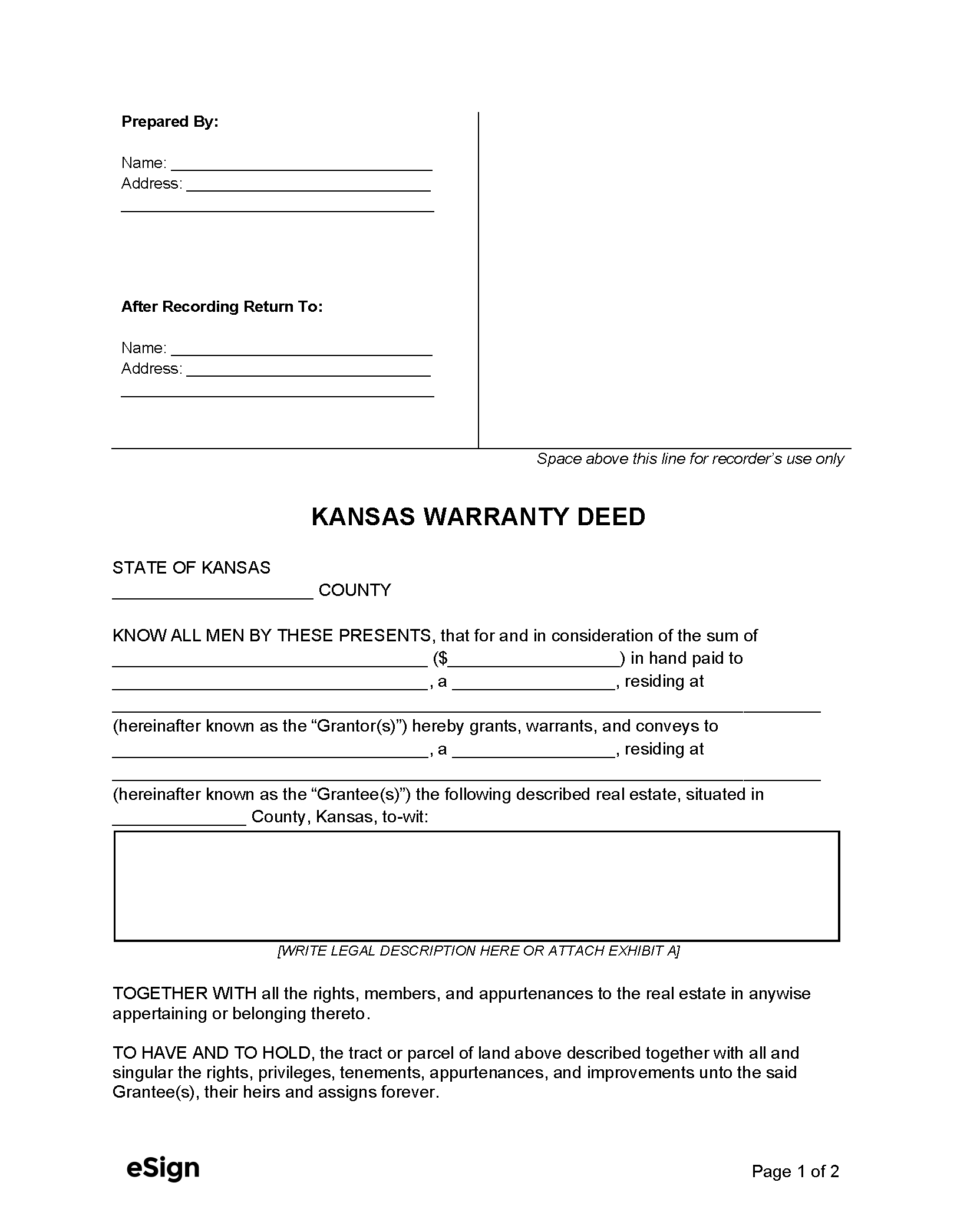 Warranty Deed – Warrants that the title is free and clear of any encumbrances. Warranty Deed – Warrants that the title is free and clear of any encumbrances.
|
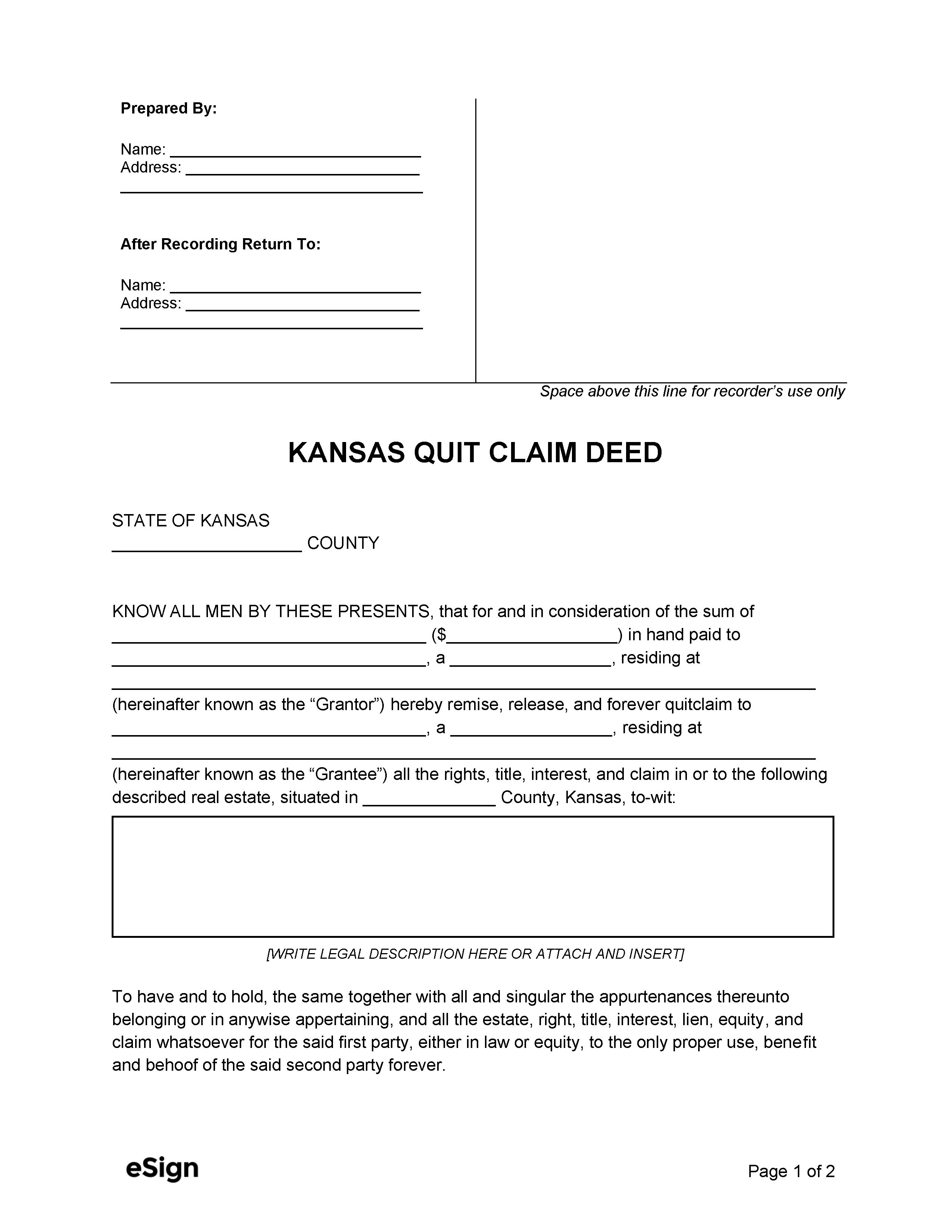 Quit Claim Deed – Transfers real estate between two parties without any guarantee that the property is free of encumbrances. Quit Claim Deed – Transfers real estate between two parties without any guarantee that the property is free of encumbrances.
|
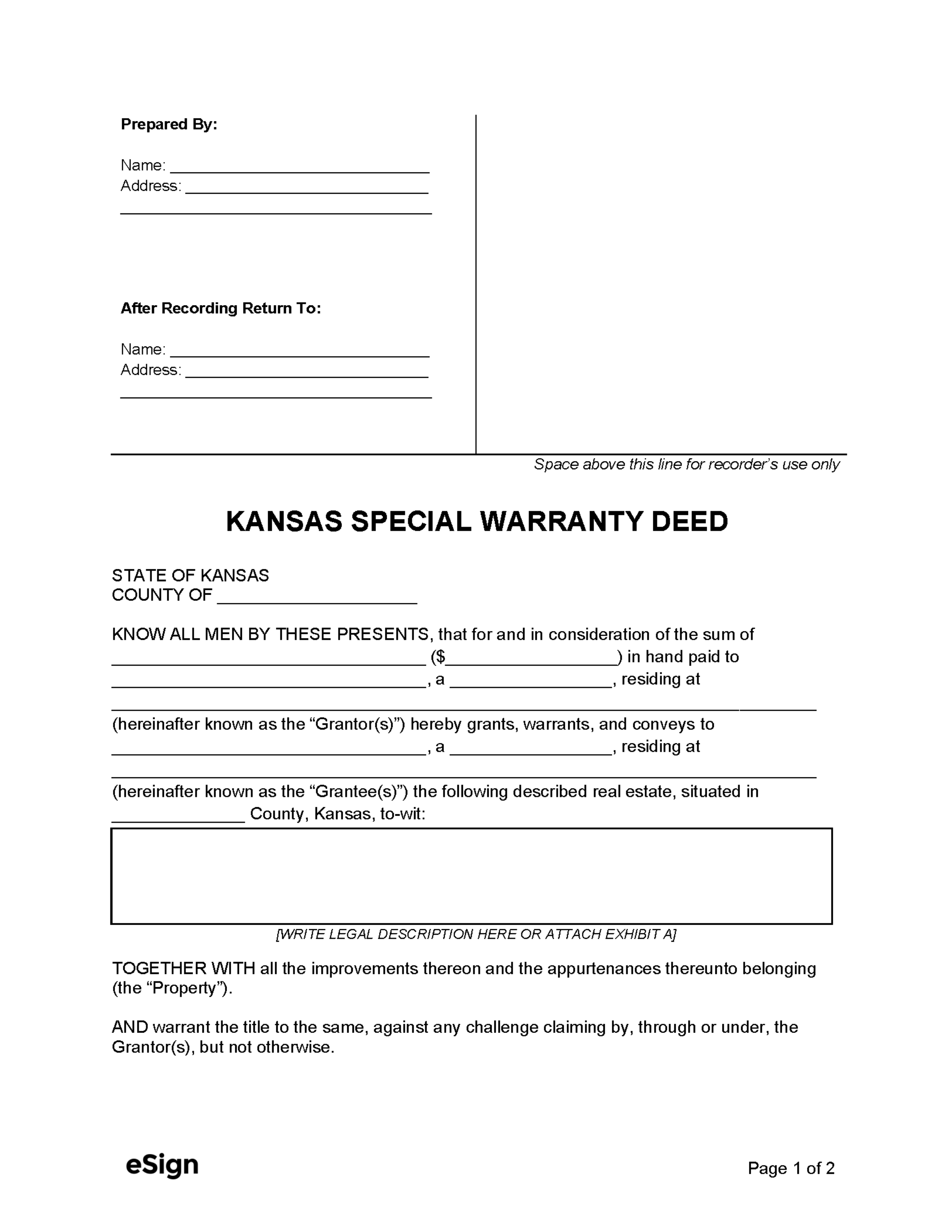 Special Warranty Deed – Conveys property to a grantee with the warranty that there are no claims or encumbrances from the grantor’s ownership period. Special Warranty Deed – Conveys property to a grantee with the warranty that there are no claims or encumbrances from the grantor’s ownership period.
|
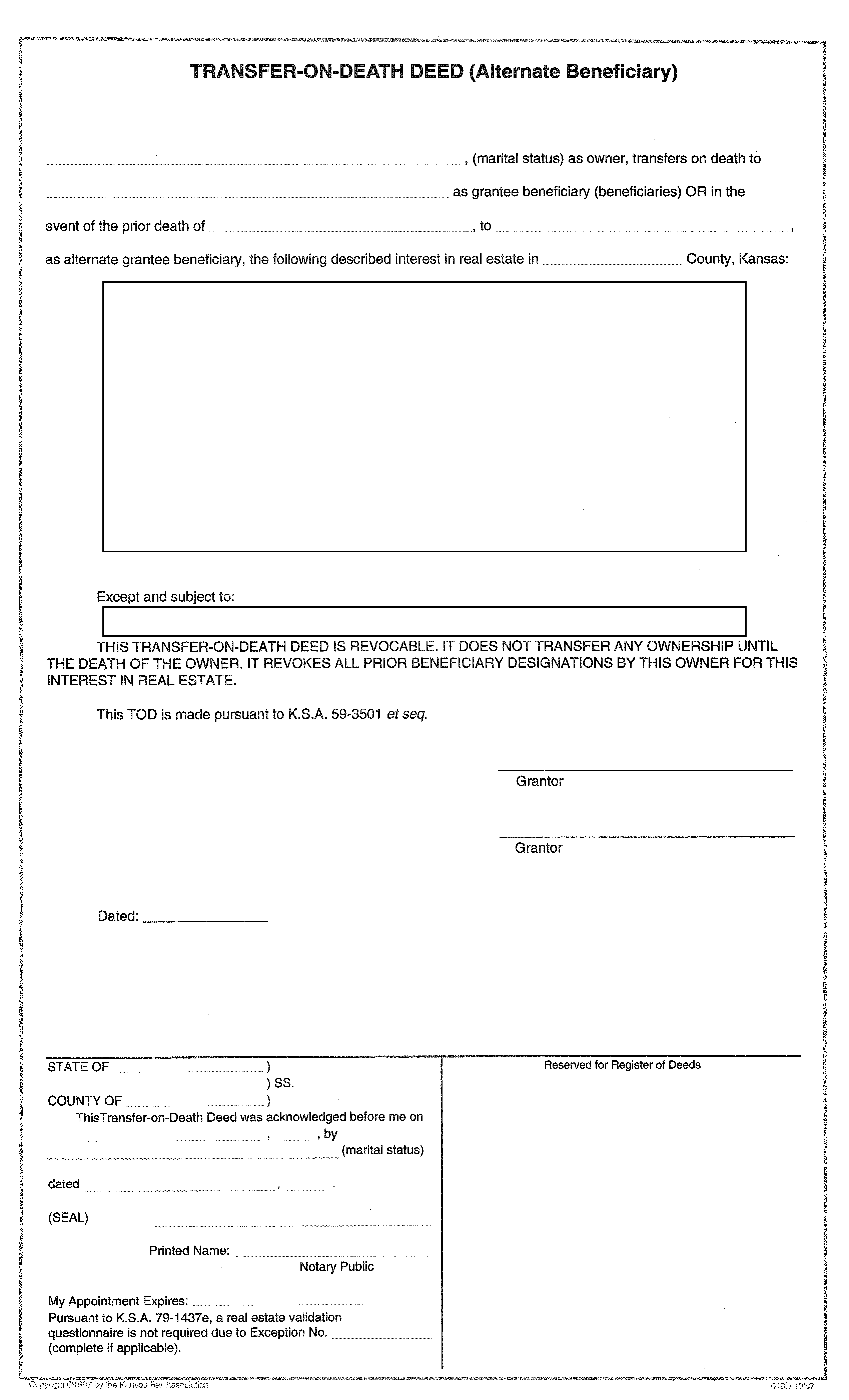 Transfer on Death Deed – Transfers a property’s ownership to a beneficiary while allowing the grantor to maintain full property rights during their lifetime. Transfer on Death Deed – Transfers a property’s ownership to a beneficiary while allowing the grantor to maintain full property rights during their lifetime.
Download: PDF |
Formatting
Paper – Maximum dimensions: 8.5″ x 14″
Margins – No state-wide standard; some counties may have specific margin requirements.[1]
Recording
Signing Requirements – The grantor must have their signature notarized by a notary public, county clerk, register of deeds, mayor, or city clerk.[2]
Where to Record – The completed deed is filed at the Register of Deeds in the property’s jurisdiction.[3]
Cost – $21 for the first page and $17 for each subsequent page (as of this writing)[4]
Additional Forms
Sales Validation Questionnaire (SVQ) – This form must accompany all deeds unless they are exempt and the exemption is stated in the deed.[5]
